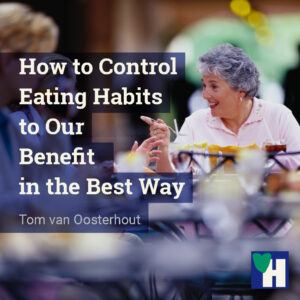
How to control eating habits is quite a challenge. Some of the following insights might support our efforts. These insights focus on the way we make everyday decisions. And more specifically, how we play tricks on ourselves.
No matter how smart we are, avoiding these tricks is not easy. So we never have to be ashamed when we are fooled by our own arguments. It takes awareness, time, and training to outmaneuver our tricky eating habits.
I will first explain some revealing ways how we make food choices. The first refers to how we assess portion size. The second refers to the influence of our social environment on how we forage our food. There are a number of other ways, but for now, these 2 are sufficient to make my point.
Some of the links are affiliate links. As an affiliate associate, we earn a commission when you purchase any of the products offered through the shared links at no extra cost for you. This helps us maintain this website.
Table of contents
How to control our eating habits?
Train yourself as consciously as possible to buy good and healthy food (= organic), how to prepare it and how to consume it. Restrict yourself in the number of meals a day and the quantity of food.
Portion Size
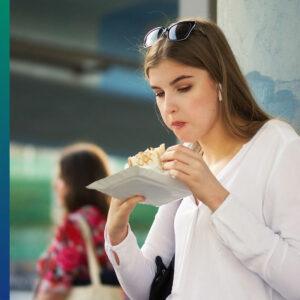
When we eat food, which we perceive as healthy, we usually eat too much. We think healthy food is low on calories. Or we presume it burns more body fat. A symptom of these mistakes is how we assess portion size.
The assessment of portion size comes with obvious risks. We have to correctly estimate the caloric value of the different portions. Research shows that we’re not good at making such estimates.
As a result, we usually eat more calories. This happens because we tend to underestimate the calories of food portions. Try to make numerical estimates of the food you prepare or eat to avoid this error. It’s also important to be aware that we overestimate the number of calories we burn with exercise.
Every gain comes with a loss
The quote “every gain comes with a loss” is attributed to the very famous Dutch soccer player, Johan Cruyff. By now, it’s probably part of Hannie’s and my vocabulary. It’s part of our cultural inheritance. :o)
When it comes to food, the gain is that we do not have to compete for our food anymore. Food is everywhere. The loss is that we cannot get rid of our urge to compete for food. This manifests itself in how we collect and eat food.
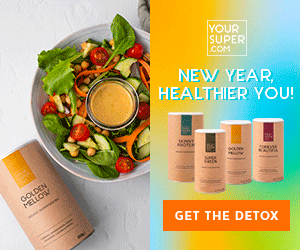
Most of us are aware that the best time to shop for food is after lunch or dinner. That is the moment we most likely pick up less fast food. This is why commuters have a serious problem controlling their eating habits. On their way home, before dinner, their eating control wavers.
Food competition urge
Our food competition urge is the most prominent when somebody else is present when we buy or eat food. Despite the abundance of food, we’re still afraid someone might steal our food or that no food is left for us. As a result, when in the company of other people we eat more frequently and smaller amounts of food.
This is very unfortunate for several reasons. First, this idea of rivalry motivates us to eat too much. Second, the knowledge of this foraging tactic has been picked up very quickly by the industry that sells fast food.
Where are you never alone? On your commute home. Train and subway stations are perfect food traps. All over the world, these changed into big fast food markets. People either started to pick up breakfast in these markets or grazed food before having dinner at home.
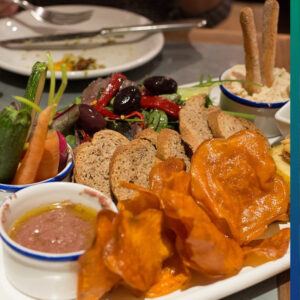
What happens is that our social life facilitates us to eat too much. There are various reasons why this can hardly be countered. There is not much fun in eating alone. Which would be best to avoid obesity. In contrast, loneliness contributes to obesity.
At home, in the office, in train and subway stations, on the street, even when we’re in the car, we never seem to be alone. Most of us very much enjoy a social life. In the presence of others, we also seem to change our behavior. Not always for the better.
How can we control our eating habits under social pressure? Many governments assume that public information campaigns can create awareness. This awareness is then supposed to support resistance against social pressures. Unfortunately, this doesn’t work.
How to control eating habits?
Probably the best way to control eating habits is with a food allergy. This gives you a perfect excuse to counter social food pressures. The allergy makes you also more aware of the need to control your eating habits.
Another option is to keep your nose closed when you walk through fast and easy food areas. Both, however, are not very serious solutions. Neither is closing your eyes.
When you lack an allergy and still want to gain more control over your eating habits, I suggest you read Erich Schlosser’s (2002) Fast Food Nation, The Dark Side of the All-American Meal. Meat-lovers should also read Slaughterhouse, The Shocking Story of Greed, Neglect, and Inhumane Treatment Inside the U.S. Meat Industry, written by Gail Eisnitz (1997).
You can also decide to only eat organic food. Of course, there are some fast and easy organic food options. But you really have to know where you can buy them. You will hardly find any in socially crowded places. Which makes it also easier to withstand the organic fast and easy foodstuff.
Related: Review of Nutriciously – How to Change Lifestyle Habits Sustainably
We need to train ourselves to control eating habits
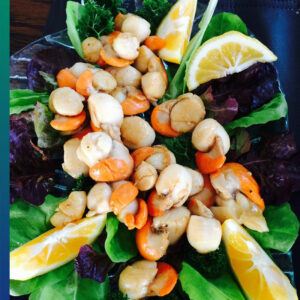
When we want to train ourselves to control eating habits, we need to avoid the following tricks. There are more tricks, but these are the most obvious and important ones.
Ease of recall
Food seduces us. The more often we eat, and the more we like it, the better we remember it. Now try to remember that you decided not to graze for fast and easy food anymore. Not at home, and certainly not anywhere else. What memory do you think gets priority?
Because we eat frequently and usually enjoy our food, food experiences tend to stick on top of our memories. These food experiences are easily recalled. This ease of recall might urge us to restrain ourselves.
Unfortunately, this is not how it works. The seductive powers of the smell and the taste and the sounds and the witnessing of others eating food, overwhelm us. You will lose the fight against such seductive powers by merely remembering you decided against them.
Insensitivity to sample size

We frequently fail to appreciate the role of sample size in assessing the reliability of sample information. Moreover, fast food never comes with sample information. It comes with information on how good it smells and tastes and how hungry you are.
One of the most seductive strengths of fast food is that it directly penetrates our senses. Let me give an example with far-reaching consequences in time as well as in impact.
I was born in a bakery. Sort of. The parents of my mother had a bakery and shop in the middle of town. My grandfather was a very good baker. He was also very fond of his grandchildren.
We lived some 10 minutes on foot from the bakery. My mother took me every day to her parents. Every day, I was exposed to the most exquisite food. Besides, my grandfather liked to share. As a result, I can smell a bakery anywhere from a mile away.
In the beginning, I could not resist and had to go inside and at least buy one item. At present, I’m more in control. I only tell Hannie how many bakeries we passed during our walk through the village or a city during our holiday. She never notices any…
Overconfidence
We tend to be overconfident. We think we can easily control our eating habits. And that we can convince ourselves of the choices we make. Or that we can resist food’s seductive powers. We are convinced that what we eat is our own individual choice.
How often are we not in a hurry? Running through the supermarket. Speed walking to the train or subway to get home. Just in time to find out that our train left. Or that we have to wait another 15 minutes because the train is late. How better to control the boredom of waiting than with some fast and easy food?
Fortunately, in the era of the mobile phone, it has become quite a challenge to eat and read. We have to use both our hands to tell our best friends how they can avoid fast and easy food.
This is why the fast and easy food industry discovered the paper bag. Everything is quickly loaded in the bag for your convenience. Once you’re on the train, you can Twitter with one hand, and eat with the other. No shame in filling the entire carriage with the smell of your fast and easy snack.
The confirmation trap
We seek information that confirms what we think is true. At the same time, we neglect opposing evidence.
The confirmation trap is something else than denial. To deny there is a pandemic is a conscious choice to misinform. The confirmation trap works automatically and unconsciously.

This means that it’s difficult to avoid the confirmation trap. This is more so because we also tend to believe the people in our social circle that support our truth. We also hook up to information sources that support our truth.
The best way to counter the confirmation trap is by testing every claim for its evidence. When you cannot find any evidence supporting a claim, the claim has obviously no ground. This doesn’t mean that the claim is false. It only means that we cannot claim it to be true.
Some rules of thumb
Our options to make the right food choices are limited. Summarizing, the following rules of thumb might be of some assistance:
- Calculate your calories.
- Get as much information you can about calories.
- Use an app on your mobile phone to count your daily calorie-intake. There are numerous calorie-counting-apps (Hannie uses e.g. the Food app of Virtuagym) and websites where you can check the amount of calories in food.
- Organize social support. Invite your friends to share their daily calorie-intake.
- Remember that not only the calories count. When you chew your hamburger to pulp in your mouth, it’s healthier than when you swallow your green salad without chewing properly.
- Watch your food combinations carefully. Bread, rice and pasta don’t digest well with meat or fish. Vegetables can be mixed very well with either meat or fish, and with bread, rice or pasta.
What are your healthy eating habits? Tell us in the comment box below.


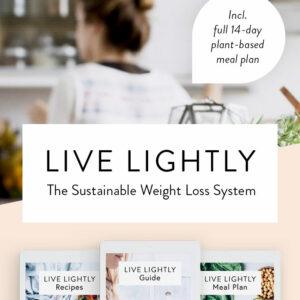
Hi Tom,
Thanks for sharing this article with us! I think eating habit is crucial because it’s all about the quality of what we eat and the quality of life. My personal eating habit is just like what you said to calculate the calories of things you eat every day, and it does help to control my endless desire for food, especially for biscuits between meals.
I also use my smartphone to take photos of what I eat, no matter how small they are. I will review them after I go back home. If I know I’ve eaten too much today, then I would eat less for the next few days to be more cautious.
Cheers,
Matt
Hi Matt,
Thanks for your comment.
That’s a very smart trick, to take pictures of what you eat and to review them when you get home. The additional advantage is that you can enjoy your food twice.
Because that is very important, to enjoy your food. Sometimes I think calculating all those calories takes the fun and taste out of the food. Fortunately what I cook is not only healthy, it’s also very tasty.
O yes, biscuits. I can eat biscuits all day. And bananas. Bread. Cake. They got those lovely empanadillas here. That are a type of dumplings stuffed with fish, egg, or tomato and onions. So tasty.
So you understand that it takes quite some effort to control my grazing habits.
I hope you enjoy your food as much as I do.
Stay safe, stay healthy. Happy holidays.
Regards,
Tom
Hey Tom,
A very timely read for me.
Now you’d think with my inclination towards exercise, health and fitness that this is a subject that wouldn’t be an issue for me.
Firstly, I completely agree with your very first item here today.
Many people believe because they are eating “healthy foods” they can literally gorge on these without any consequences.
Okay, this may be true for various vegetables, but for many other items of food that are considered “healthy”, there is the implication of additional calories.
Basically, you can overeat and fall into the realms of unhealthy, irrespective what food type you’re eating.
You talk of calories, but as I say you can still overeat “healthy” calories, which will lead to weight gain, and potentially other health-related issues too.
I must admit I did giggle somewhat at the “sample size” or “portion size” as I would call it.
I’ve often eaten food items all to myself that are said to be a “meal for two” or “for a family of four”.
I sometimes think to myself, “How small are these 2 or 4 people?” LOL.
I will say that due to the various “lockdowns” that we have gone through this year, my eating has frequently become a concern to me.
I’m sure it’s down to boredom more than anything else, but there have been occasions when I’ve thought to myself that I’m out of control.
I tend to have a few sensible days of eating, and then suddenly the urge strikes me, and I think to myself that there’s no harm in having one small treat.
One treat typically leads to another and then another.
I think I’m going to keep this article open on my laptop throughout my working day for the forseeable future.
It’s good to have a timely reminder every-now-and-then.
Plus, with Christmas upon us, and yet another extended lockdown in London, I fear that the control factor is something I’m going to lose once more.
A great read Tom, and you can rest-assured that I will be back to read this again many times over the coming weeks.
Partha
Hi Partha,
Thank you very much for your extended comment and a very flattering compliment: “I will be back to read this again many times over.” I wish myself many such compliments.
And yes, you are quite right, control is what it takes to prevent ourselves to end up like big round barrels. Perhaps you recognize the feeling: your body prefers to be rolled down the street than rather stand on its own feet. A feeling I shared too often.
Fortunately that is all behind me now. My weight is okay. My condition is good. I have a healthy appetite. Never felt better. And the funny thing is that this all helps me to counter the seductive powers of sweet and savory food and drinks.
What I don’t get Partha, is that when you have to prepare so much food (for 2 or even 4, just for yourself) and exercise that much and write all these long articles and comments, where do you get the time to eat and socialize?
For now, happy holidays. Stay safe, stay healthy.
Regards,
Tom
Hello Hannie
I find this so interesting. I am forever telling my husband that what he has on his plate would feed a small village in some third world countries! Also, his food just disappears – there’s not much chewing going on. I knew chewing was important but didn’t realize just how important.
I saw an amazing video about the importance of calorie density and how you could eat the same weight of cheese (for example) and carrots and the calorie difference would be dramatic. Hence we are forever hearing that you can put as much veg or as much salad on your plate as you like – you couldn’t eat enough of it to put on weight.
I went on a plant-based diet after the first lockdown when I put on a stone and a half. It was great for a while and it definitely worked but I couldn’t do it long-term.
I haven’t counted calories before. Technically I would need to eat less than 1300 a day (my resting calorie burning rate) which I think is too low so when my uniform is choking me, I cut out alcohol and biscuits, eat more veg and exercise more which generally does the job.
Thanks for another great article.
Best,
Jean
Hi Jean,
You don’t mind if I reply to your comment? I don’t mind you mistook me for Hannie. I remember that Hannie and I had to shake a lot of hands during an official event. I walked right behind her and twice introduced myself as Hannie. So you don’t have to worry, it happens to the best!
You are right, chewing is very important. It helps your food flow more evenly down the drain.
The issue with calories is that a calorie of food does not represent the amount of energy that is required to digest the food. Green salad and carrots, for instance, require more energy to digest that they provide. So yes, these two you can eat as much as you like. In contrast, rice and maize contain almost five times more calories than potatoes and almost 20 times more calories than tomatoes.
Pick your fruits and vegetables wisely. Although I must say, it sometimes looks like a job when you want to know everything about the food you eat. One thing is very clear though. A regular can of a sweetened power soda contains more calories than a cheeseburger. For me, because I don’t eat pork or beef, the choices are somewhat easier.
You introduced the word long-term. That is always risky when you want to balance your weight, against your long-term condition and health. When your young you burn a lot of energy and with a normal life and a regular healthy food intake, you usually feel pretty good. From experience I know that this made me sloppy. Getting older I had to pay the price with overweight and, although fortunately very mild, health issues. Never again I want to go that way.
We often learn the hard way. Perhaps that’s how it’s supposed to be. It’s also very difficult to say goodbye to all those tasty things we cherish so much. Awareness comes with control and control takes much effort. Being busy all day, we sometimes lack the energy to fight ourselves. That’s why we introduced a cheat day once a week. This works pretty good for us.
For now, happy holidays. Stay safe, stay healthy.
Regards,
Tom
That’s so funny that you can smell bakeries from far away. It’s interesting how certain things from our childhood remain with us for the rest of our lives.
I usually don’t eat large portions. Although I have breakfast, lunch, and dinner, I don’t have a fixed schedule for them; I eat when I feel hungry, and I sometimes have a fourth portion in between. Throughout my life I have never ever counted calories, but I also never overate. When I lived in Belgium, England, and Germany I often took the train to work, and sometimes I bought a few snacks on the way, sometimes because I was hungry and often because I just loved the taste of a certain item (the Belgian frangipans 😉 )
I also like to eat in company and I noticed that in company I take my time to eat and I may also eat a little more, get extra portions. When I eat alone I finish my portion faster.
The only thing that I may be overdoing a little now that we are working from home, I eat more chocolate than I used to, because I just love it so much … but I guess that dark dairy-free chocolate is actually fine.
Hi Christine,
O yes, frangipane, dark chocolate (dairy-free for sure), apple pie, shortbread, cake (in all sorts and sizes). Writing down these words makes my mouth water.
In Holland we lived only 10 minutes by car from Belgium. I have a distinct family line to some ancestors in Belgium (Antwerp, Rijckevorsel). They really know how to enjoy life, don’t they?
Taking time to eat is actually very important. With this you introduced the positive side of social eating habits. You slow down eating, your digestive system slows down. This better enables your body to profit from food’s nutrients.
For now, happy holidays, enjoy your food, and your company.
Stay safe, stay healthy.
Regards,
Tom
Wow! The interview with Eric Schlosser is very revealing and disturbing.
It saddens me that exploitation is so rampant within the food industry as well as many other industries in many of the world’s so-called developed countries. I imagine it only continues because our governments turn a blind eye to it.
I believe more transparency is needed so that people are better able to make conscious choices to choose humanely produced foods from manufacturers who support their workers with fair conditions. This move needs to be consumer-driven, and therefore it’s up to each one of us to decide where to spend our dollars.
With regards to controlling eating habits, I tend to follow my gut instincts and choose natural foods whenever possible. I tend to avoid fast foods, packaged foods, and anything that been highly processed. And yes, sometimes I do eat too much, but not on a regular basis 🙂
Thanks for sharing.
Hi Andrew,
Thank you for your comment.
Eric Schlosser is a breed of in-depth reporter we’re unfortunately very short off.
You picked the right word: exploitation. Powered by greed it’s the most dangerous road ahead. Moreover, when governments supportively wink with an eye to the exploiters. Which is perhaps even worse than turning a blind eye.
I agree, more transparency is needed. More awareness is required. We should also try to support each other more to make the right choices.
The challenge is that people often make choices because they are convinced that these are right, even when they are aware their choices go against scientific arguments or common sense.
In the end, what is important with the food we eat, is that we should feel okay. To open up to this feeling is very important. ‘Listen’ to your body. What does it tell you? Do you think your eating habits will keep you fit, today and in the future? Simple questions, yet not that simple to answer.
To control our eating habits in the best way possible is not that easy as I perhaps make it sound. This is why Hannie and I invest much time and effort in writing about it. The comments we get enable us to improve on this.
For now, happy holidays. Stay safe, stay healthy.
Regards,
Tom
I agree with you, Tom, that “what is important with the food we eat, is that we should feel okay.” Wise words!
For me, feeling ok is about being in alignment, mentally, physically, emotionally, and spiritually. And the food we consume plays a major role in creating a balanced and healthy ‘whole’ organism.
“Listening to our body” is great advice, and for anyone who is tuned into their physical, mental, and emotional states, they will naturally be able to discern which foods and how much of it is of benefit to them at any given time.
It seems that most of our problems (regarding poor eating choices and habits) stem from our inability to accurately tune in to how we are feeling. Or, even if we can recognize our feelings, we ignore them and make poor choices even if we fear the consequences…. like knowing that drinking 10 sodas a day will lead to diabetes.
I do think that it’s becoming more difficult to assess what is good for us and what is detrimental to our health as time goes by. Because as you point out, the fast-food industry (as one example) is becoming very clued up on consumer behaviors and they have become masters of manipulation… convincing us that it is for our advantage that we need to purchase and consume lots of their products!
Once again, thanks for sharing a great article.
Hi Andrew,
Thank you for your comment and compliments.
The French national newspaper Le Monde featured an article on its website this week referring to a scientific article about the health benefits of organic food. They claim that for the first time scientists were able to establish the health benefits of organic food.
I am not a paying customer of Le Monde, so I couldn’t read the newspapers’ article, but I could download the scientific article about the claim. Although you need a lifetime to understand all the scientific ins and outs of this article, I take their claims seriously.
The scientists examined the metabolic profiles of the end products of cellular processes. Urine samples of children – one of the end products of cellular processes – were used as biomarkers to expose residues of pesticides and the coinciding oxidative damage. The children were subsequently submitted to a 40-day organic food intervention and to a 40-day regular food period.
The study proved for the first time the reduction of oxidative damage. This is the best news I have read in many years. It is significant that Le Monde so prominently features this study. Let’s hope other news outlets follow suit.
Stay safe, stay healthy.
Have a nice day,
Tom
Hi Tom,
Thank you so much for providing such useful information. I loved your article. The way you summarized everything in the ”rules of thumb” section is quite impressive.
Yes, I totally agree that most of our health issues are associated with our diet. It is even most pertinent now as our generation has become more sedentary due to the nature of our work where we spent a lot of our time sitting behind the desk, not to mention the impact of covid-19 that is making us stay at home more than ever before.
If anything, I will be paying closer attention to the way I combine my meals going forward.
Thank you
Femi
Hi Femi,
Glad you loved my article. Thank you for your compliments.
It is good you mention “sitting behind the desk”, because right now I stand behind my computer typing this reply. Today I stood already over four hours like this, writing articles and replies.
Standing behind my computer I can do all kinds of exercises. Standing also keeps my energy level up and inspires my writing. You should try it. It will make you feel good.
For now, happy holidays. Stay safe, stay healthy.
Regards,
Tom